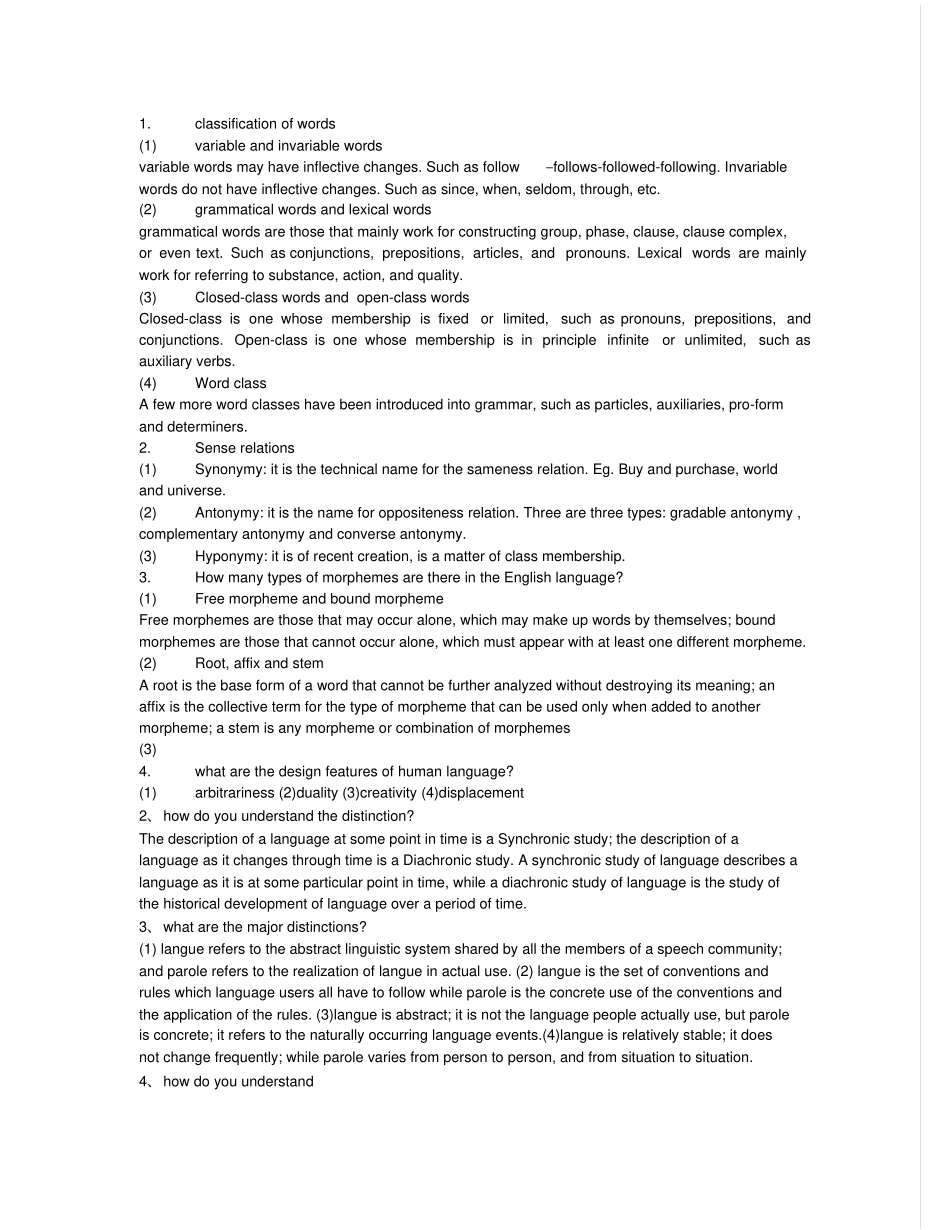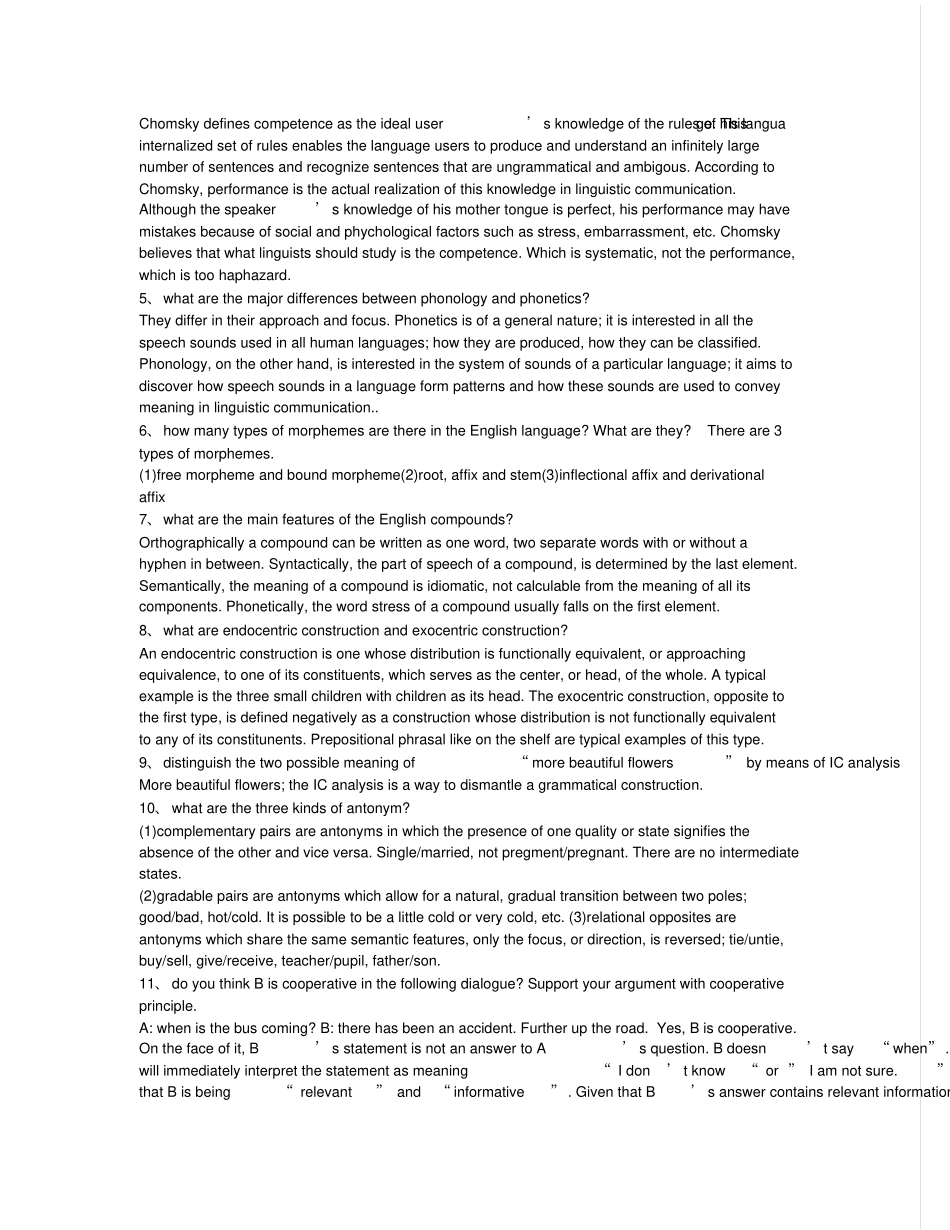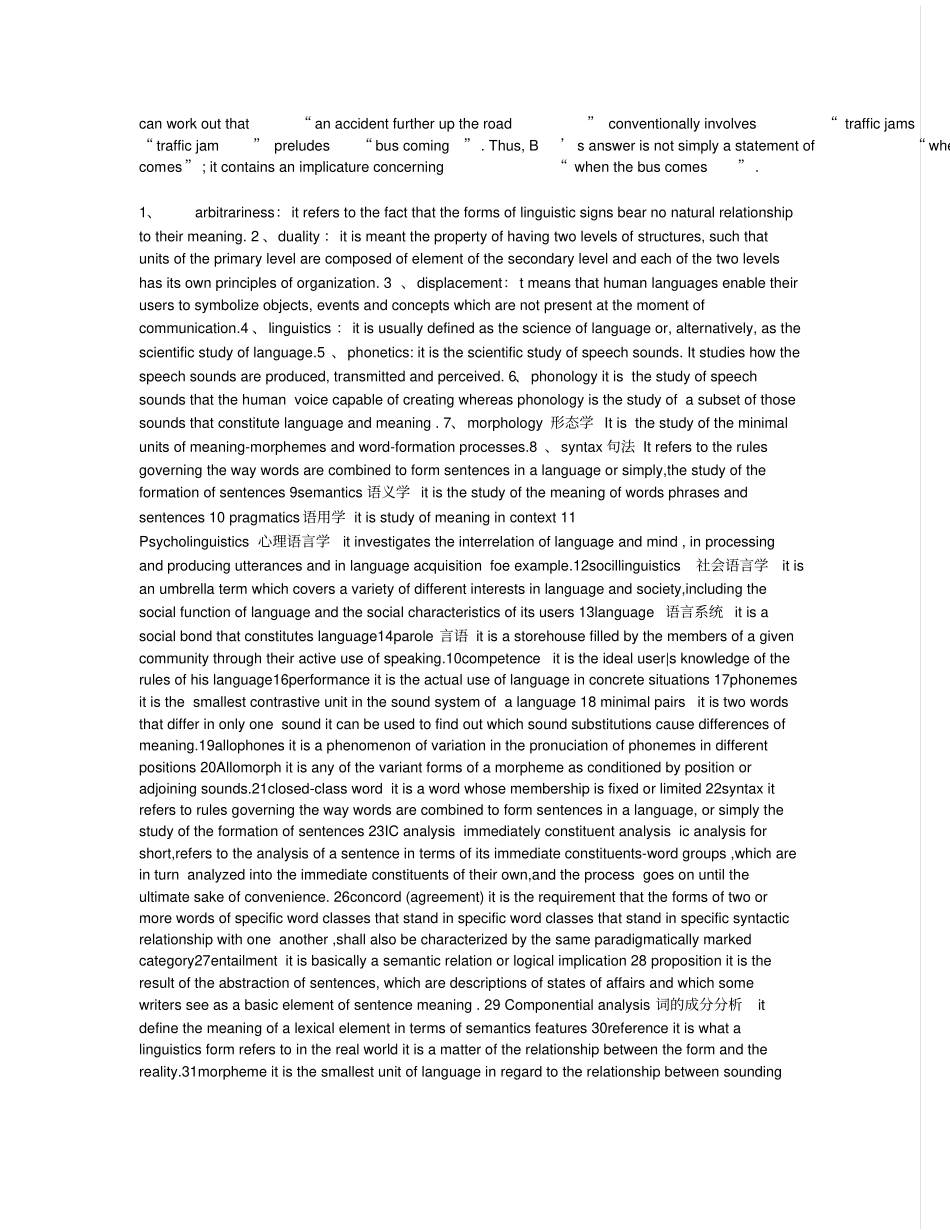1.classification of words (1)variable and invariable words variable words may have inflective changes. Such as follow –follows-followed-following. Invariable words do not have inflective changes. Such as since, when, seldom, through, etc. (2)grammatical words and lexical words grammatical words are those that mainly work for constructing group, phase, clause, clause complex, or even text. Such as conjunctions, prepositions, articles, and pronouns. Lexical words are mainly work for referring to substance, action, and quality. (3)Closed-class words and open-class words Closed-class is one whose membership is fixed or limited, such as pronouns, prepositions, and conjunctions. Open-class is one whose membership is in principle infinite or unlimited, such as auxiliary verbs. (4)Word class A few more word classes have been introduced into grammar, such as particles, auxiliaries, pro-form and determiners. 2.Sense relations (1)Synonymy: it is the technical name for the sameness relation. Eg. Buy and purchase, world and universe. (2)Antonymy: it is the name for oppositeness relation. Three are three types: gradable antonymy , complementary antonymy and converse antonymy. (3)Hyponymy: it is of recent creation, is a matter of class membership. 3.How many types of morphemes are there in the English language? (1)Free morpheme and bound morpheme Free morphemes are those that may occur alone, which may make up words by themselves; bound morphemes are those that cannot occur alone, which must appear with at least one different morpheme. (2)Root, affix and stem A root is the base form of a word that cannot be further analyzed without destroying its meaning; an affix is the collective term for the type of morpheme that can b...


